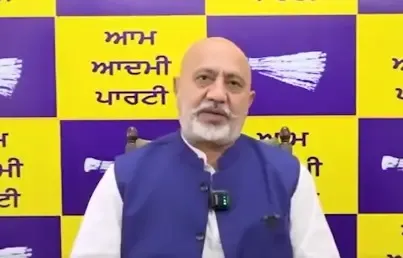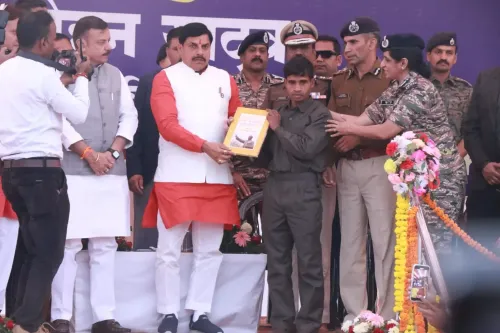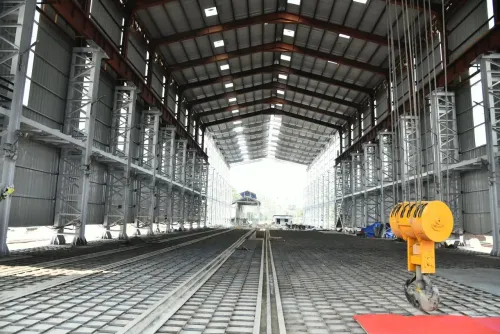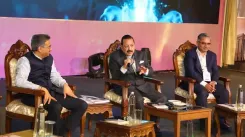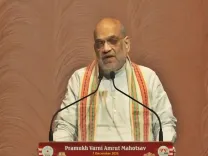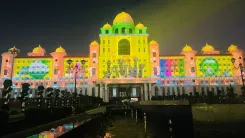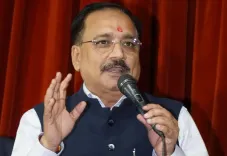Karnataka Government Considers Increasing Water Tariffs in Bengaluru
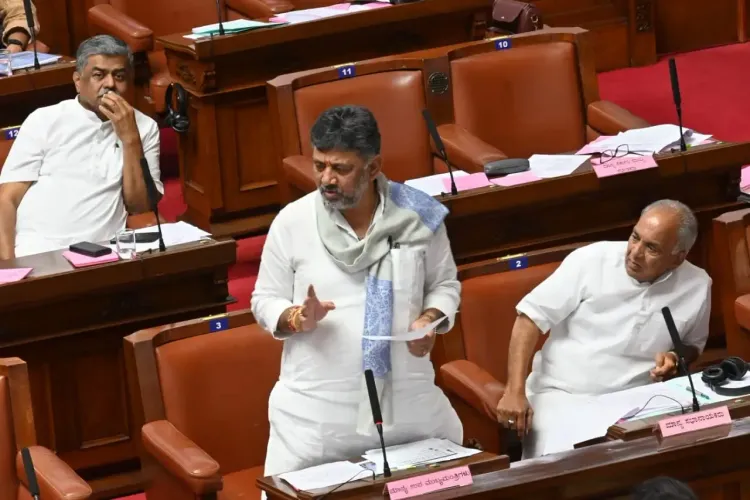
Synopsis
Key Takeaways
- Bengaluru's water tariffs have not been updated since 2014.
- BWSSB suggested a seven to eight paise hike per litre.
- The state government is considering a one paise increase.
- Water scarcity issues are exacerbated by rising costs.
- Private water tankers are charging double the usual rates.
Bengaluru, March 14 (NationPress) Karnataka's Deputy Chief Minister D.K. Shivakumar announced in the Legislative Council on Friday that water tariffs in Bengaluru have remained unchanged since 2014.
The Bangalore Water Supply and Sewerage Board (BWSSB) has recommended a rise of seven to eight paise per litre, but currently, the state government is contemplating a modest increase of just one paise per litre, according to the Deputy CM.
A discussion on this topic will soon take place with the city's MLAs, Shivakumar mentioned.
His remarks came during the Legislative Council's zero hour, triggered by Congress MLC Ramoji Gowda's concerns regarding water scarcity in the eastern regions of Bengaluru.
Shivakumar pointed out that the lack of a tariff increase since 2014 has resulted in BWSSB incurring an annual loss of Rs 1,000 crore.
Additionally, the rising electricity costs have compounded BWSSB's financial challenges. While the board suggested a seven to eight paise increase, Shivakumar proposed starting with just one paise.
This matter is set to be addressed during upcoming BBMP budget discussions with Bengaluru MLAs, he stated.
MLC Ramoji Gowda highlighted that private water tankers are charging double the standard rates, making it hard for residents to secure clean drinking water.
He appealed for the government to provide free water and expedite the connection of Cauvery water supply to households.
In response to these issues, Deputy CM Shivakumar, who also serves as the Bengaluru Development Minister, recognized the gravity of the situation.
He commented: "With rising summer temperatures and last year witnessing a significant water crisis, where 7,000 borewells ran dry, private water tankers were brought under BBMP's oversight to tackle the emergency. March 22 is recognized as Water Conservation Day, and a month-long awareness campaign focusing on water conservation is being organized. The Cauvery Phase 5 project has been finalized and is currently supplying water to 110 villages surrounding Bengaluru."
Shivakumar also criticized large apartment developers for failing to pay BWSSB's water connection deposit fees.
Numerous developers have resorted to illegal water connections, and notices have been dispatched to those offenders, the Deputy CM remarked.
Regarding the private water tankers, Shivakumar stated that stringent regulations will be enforced to bring them under control.
Plans are in place to refill dried-up lakes in Bengaluru to enhance groundwater levels, he added.
A minimum rate for private water tankers has been established to protect consumers from exploitation. Emergency water supply measures will be enacted wherever necessary, Shivakumar asserted.
Furthermore, the state government is progressing with the Cauvery Phase 6 project to bolster Bengaluru's drinking water supply, he mentioned.
This proposal will be submitted to the State Cabinet for approval, and public input will be sought before moving forward, he noted.
Shivakumar also called on citizens to engage actively in water conservation initiatives.
He stressed that drinking water should not be wasted on activities like washing cattle or watering plants.
Many rainwater harvesting systems are being poorly implemented, with concrete being placed over designated rainwater collection areas, he indicated.
New regulations will be introduced to curb such violations and ensure proper rainwater harvesting, Shivakumar concluded.


